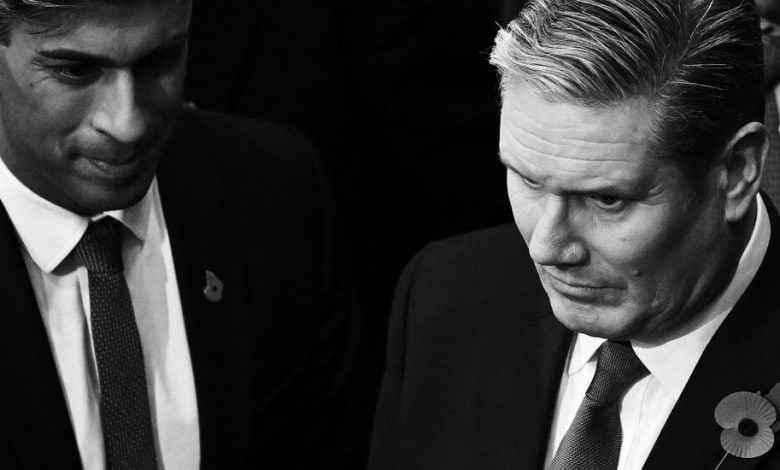The Tories Will Lose the Election. But What Will Labour Win?

A snap election is a rush to judgment on the state of a nation, and in Britain, the vote coming in less than six weeks appears likely to be a devastating referendum on the governing Conservative Party, which is heading for all but certain humiliation. But perhaps it will also be an indictment of the Labour Party opposition, which seems remarkably uninterested in seizing the moment.
To Americans watching the sudden sprint to a new Parliament, Britain looks like a zombie state and a cautionary tale — it actually embodies many of the economic maladies Americans somewhat falsely diagnose in our own country. As of last year, the country’s per capita G.D.P. is 8.4 percent below its 2007 peak — a significant decline, which has helped make the country outside of London poorer than Mississippi.
And although the prolonged slowdown in productivity may be the worst Britain has experienced since the dawn of the Industrial Revolution, the country’s struggles aren’t purely economic. Britain’s housing crisis is so bad that one homebuilders’ group called it “the most difficult place to find a home in the developed world,” and Britain’s homelessness rates are the worst in the developed world. According to research by the House of Commons, the number of people waiting for hospital treatment from the National Health Service has tripled since 2009; the share of patients spending more than four hours in the emergency room has grown from about 5 percent in 2011 to above 40 percent today; and the number forced to wait more than 12 hours for admission to the hospital, which was near zero before the pandemic, is above 40,000 this year. In late 2022, ambulances were taking more than an hour and a half to respond to calls for strokes and heart attacks. When the bedraggled prime minister Rishi Sunak called a surprise news conference last Wednesday, announcing a July 4 election almost inaudibly through blankets of rain, it seemed like an act of self-mercy — to put himself and his party out of their misery.
It also seemed, intuitively, like the turning of a page. Britain has been governed by austerity-minded Tories now for 14 years, and the results have been bleak. Brexit was another self-inflicted wound from the British right and is now lamented by a large majority of the public. It was only Boris Johnson’s peculiar charisma and idiosyncratic campaigning, in which he pledged massive public spending programs to “level up” the country, that briefly brought the Tories above water. Today, 96 percent of voters have grown less likely to vote conservative since the last election, and the British public as a whole believes it’s “time for a change” by a margin of 73 to 18.
All this points to a huge wave election, and that is exactly what appears to be coming, with middle-of-the-road analysts projecting that Labour will win 380 seats or more, compared to 190 or so for Conservatives, and neither of the country’s smaller parties expected to crack 30. How significant a victory would this be? To trust those projections, Labour could easily win a larger share of Parliament than either party has won in more than 20 years, enjoying decisive voting margins over the opposition that have only been achieved twice in the last 40 years. Parliament works differently from Congress, but the last time an American party had a two-to-one advantage in the Senate was between 1965 and 1967, when Democrats launched the Great Society. In Britain’s parliamentary system, which gives even the slimmest majority total control of the government, this would be an absolutely dominant political position that would reduce the Tories to a shriveled opposition. But what is most striking about the coming vote is not the potential deathblow it represents to the Conservative Party, which has presided almost uninterrupted over Britain’s post-crash stagnation. It’s how weakly Labour is limping forward to grasp the opportunity of what appears almost certain to be a massive, even generational, electoral triumph. And the victory could prove more sweeping still:one pollster, predicts Labour might even reach 479 seats, with only 92 for the Tories.
Big changeovers like these come pretty rarely in mature democracies, and when they do they are almost invariably seen — by both sides, both in prospect and in retrospect — as major turning points ushering in whole new political paradigms. In 1997 Tony Blair promised “New Labour, New Life for Britain” — with a political program that borrowed a fair amount of Margaret Thatcher’s neoliberalism, of course, but was also designed to steer the country on a new path, toward a prosperous and progressive “Cool Britannia.”
